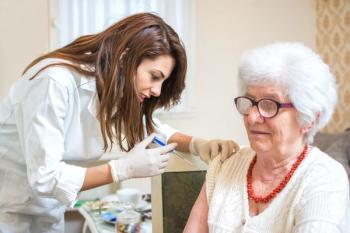
After administration of a COVID-19 vaccine, patients with multiple sclerosis (MS) taking ocrelizumab (Ocrevus) or fingolimod (Gilenya) may find themselves less protected against COVID-19 than the general population.

Skylar is an associate editor for The American Journal of Managed Care® (AJMC®) and The Center for Biosimilars®, and joined AJMC® in 2020. She is responsible for covering all aspects of the ever-changing global biosimilar industry and produces content that is accessible and informative for all health care stakeholders.
She has a BA in journalism and media studies from Rutgers University. You can connect with Skylar on LinkedIn.

After administration of a COVID-19 vaccine, patients with multiple sclerosis (MS) taking ocrelizumab (Ocrevus) or fingolimod (Gilenya) may find themselves less protected against COVID-19 than the general population.

The top 5 most-read spinal muscular atrophy stories of 2021 on AJMC.com covered a variety of topics concerning the disease, including cost differences, the potential for combination therapies, and identifying biomarkers for treatment.

Obesity was found to have a significant association with retinal structure abnormalities related to multiple sclerosis (MS); however, the impact may be greater for African Americans than Caucasian Americans.
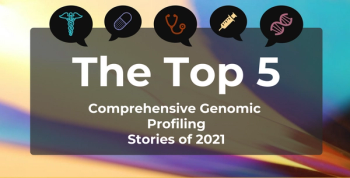
The top 5 most-read comprehensive genomic profiling articles of 2021 on AJMC.com largely focused on the use of liquid biopsy and how biomarkers can offer providers new ways to help predict treatment-related outcomes and identify therapeutic targets.

Pulse pressure was found to have a significant association with chronic kidney disease (CKD), indicating that changes in pulse pressure could serve as a predictive marker for disease progression.

Coverage from the Academy of Managed Care Pharmacy Nexus 2021 meeting, held in Denver, Colorado.

Patients with chronic kidney disease (CKD) undergoing hemodialysis experienced a greater degree of psychological distress during the COVID-19 pandemic compared with patients treated with peritoneal dialysis, investigators found.

Coping strategies can play a role in influencing the health-related quality of life and physical disability of people with multiple sclerosis (MS), researchers concluded.

Researchers recommend vaccination against COVID-19 for patients with multiple sclerosis (MS) after confirming that several types of vaccines are safe and produced no significant adverse events.

Patients who have experienced acute kidney injury (AKI) reported experiencing significant impacts on aspects of their physical and emotional health, demonstrating the different ways that AKI episodes influence patients’ health-related quality of life.
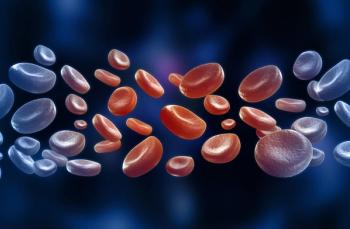
Next-generation sequencing (NGS) may be a helpful tool for establishing how B cells migrate and maturate across the blood-brain barrier in multiple sclerosis (MS), potentially providing better insight into the pathophysiologic mechanisms involved in neuro-inflammation.

Although obesity, diabetes, and certain comorbidities were all detected as risk factors for severe COVID-19 among people with multiple sclerosis (MS), other long-suspected risk factors, such as smoking and use of most disease-modifying therapies (DMTs), were not.

Changes to diet, wellness, and physical activity could have a profound effect on patients’ ability to manage their multiple sclerosis (MS) and significantly improve their quality of life at the same time, researchers concluded.
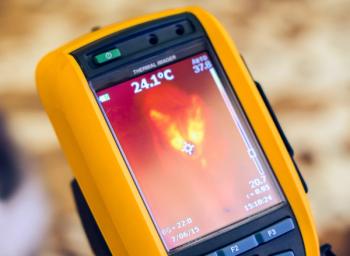
Rising ambient temperatures were found to be associated with higher risks of all-cause mortality and all-cause hospitalization in patients with end-stage renal disease (ESRD), highlighting the some of the health-related consequences of climate change.

The FDA approved FoundationOneCDx as the first companion diagnostic for current and future BRAF inhibitor therapeutics used to treat melanoma, including both monotherapies and combination therapies.

Opinions on the effectiveness and usefulness of telehealth services varied among clinicians and older patients with chronic kidney disease (CKD), suggesting that new measures and training programs should be put in place to mitigate disparities and accessibility issues.
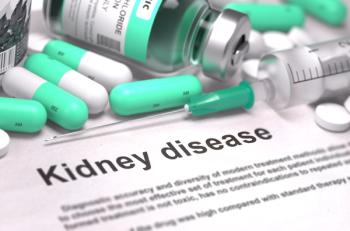
Patients with chronic kidney disease (CKD) and elevated levels of parathyroid hormone who are treated with active vitamin D therapy experienced significantly higher risks of hypercalcemia, investigators concluded in a meta-analysis.

A tool utilizing 5 predictors was found to be reliable at identifying patients at a high risk of cardiovascular disease who were also at risk of developing chronic kidney disease (CKD), potentially allowing providers to implement prevention strategies sooner than ever before.

A study examining the relation between rituximab infusion and hospitalization as a result of COVID-19 for patients with multiple sclerosis (MS) found that the 2 were not related, contradicting past research.

Next-generation sequencing (NGS) and the use of prediction tools in 2 patients with a rare form of metastatic breast cancer revealed mutations in malignant phyllodes tumors that are often detected in other advanced cancers, providing insight into potential therapeutic targets for these patients.

Body mass index (BMI) was not identified as a factor influencing cognitive function or brain mass in patients with relapsing-remitting multiple sclerosis (RRMS), investigators of a recent analysis concluded.

In a study assessing the impacts of 5 growth factors on MS, fibroblast growth factor 23 was identified to increase the risk of patients experiencing the onset and progression of multiple sclerosis (MS).

A report from the Centers for Medicare and Medicaid Innovation confirmed that practices within the US Oncology Network and Tennessee Oncology participating in the Oncology Care Model (OCM) program have contributed significant savings to the agency.

Abstracts from American College of Rheumatology Convergence 2021 showed whether gender can impact the effectiveness of secukinumab in patients with ankylosing spondylitis (AS) or psoriatic arthritis (PsA).

The European Commission gave its stamp of approval for Vumerity (diroximel fumarate), developed by Biogen, as an oral treatment for patients with relapsing-remitting multiple sclerosis (RRMS).

Anti-CD20 disease-modifying therapies, including rituximab and ocrelizumab, were found to increase the risk of hospitalization and intensive care unit admission in patients with multiple sclerosis (MS) who develop COVID-19, investigators concluded in this new study.
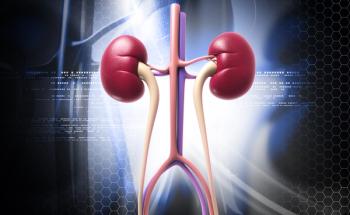
Investigators found that increased heart rate correlated with a decline in the ability for the kidneys to function at 48 weeks after a patient receives a kidney transplant, according to results presented at the 2021 American Heart Association Scientific Sessions.

Drug use, serum albumin, and total number of lesions may serve as independent factors influencing the degree of disability in patients with multiple sclerosis (MS), investigators of a retrospective analysis concluded.

Hospitalization for an acute kidney injury (AKI) event was identified as a risk factor for several adverse events after hospital discharge, including hospital readmission and mortality, according to findings presented at Kidney Week 2021.

Conference abstracts explored the relationship between serum phosphate levels on mortality in patients with chronic kidney disease (CKD) and cost burdens for employers as patients transition to end-stage renal disease.

259 Prospect Plains Rd, Bldg H
Cranbury, NJ 08512
© 2025 MJH Life Sciences®
All rights reserved.
